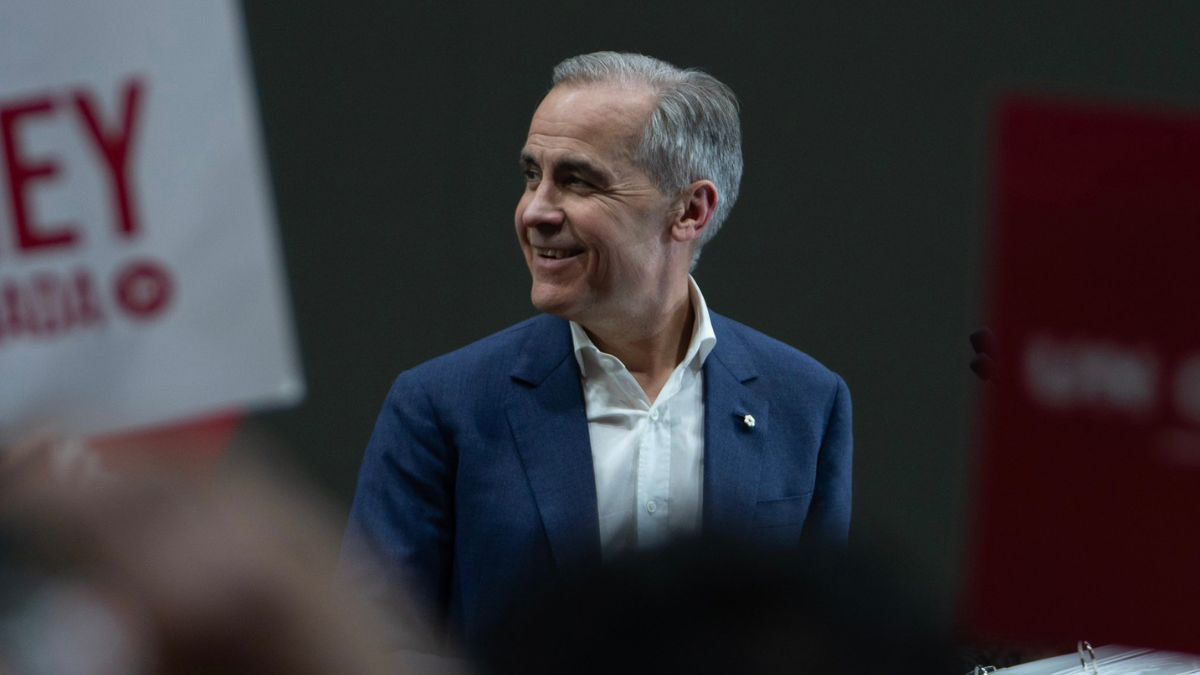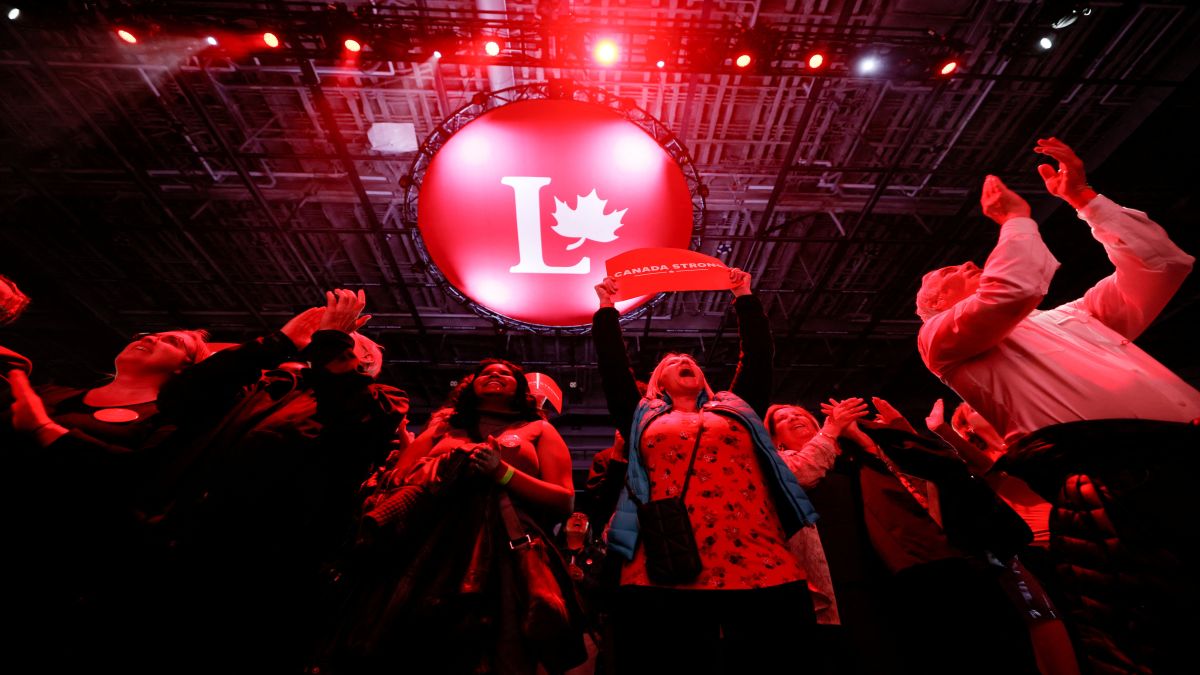Mark Carney has officially secured his place in Canadian history, leading the Liberal Party to victory in the federal elections held Monday.
It marks a dramatic turnaround for a party that, just months ago, seemed poised for electoral disaster.
Carney, a former central banker with no prior parliamentary experience, has achieved what few thought possible — becoming Canada’s Prime Minister under extraordinary circumstances.
The Liberal Party is projected to win more seats than the Conservative Party in the 343-seat Parliament. However, whether they have achieved an outright majority remains uncertain, and Carney may need to rely on smaller parties such as the Bloc Québécois to pass legislation.
Nevertheless, the win extends the Liberals’ tenure, handing them a fourth consecutive term in power.
The campaign’s momentum shifted sharply after US President Donald Trump launched a series of attacks against Canada’s economy, suggesting that the country should be annexed as America’s 51st state.
Trump’s comments outraged Canadians and fuelled a wave of nationalism, transforming the election narrative in the Liberals’ favour.
As David Lametti, former Liberal Justice Minister, told CTV, “We were dead and buried in December. Now we are going to form a government. We have turned this around thanks to Mark.”
Trump’s aggressive rhetoric led to record early voting numbers, with 7.3 million Canadians casting ballots before election day.
Many voters, angered by Trump’s threats and tariffs, rallied behind Carney, seeing him as the leader best equipped to defend Canadian sovereignty. “The Americans want to break us so they can own us,” Carney warned during the campaign. “Those aren’t just words. That’s what’s at risk.”
Conservative Party leader Pierre Poilievre campaigned heavily on dissatisfaction with former Prime Minister Justin Trudeau’s decade-long tenure, but his strategy backfired.
Having run a campaign style critics likened to a “Trump-lite” approach, Poilievre found himself unfavourably compared to the American president.
Why Mark Carney is the one for crisis-hit Canada
Mark Carney’s life and career have been marked by moments of intense global upheaval, a background that resonated with voters seeking steady leadership in a volatile world. Born in Fort Smith in Canada’s remote Northwest Territories and raised in Edmonton, Carney’s early life included the quintessential Canadian pastime — playing hockey.
His academic journey took him to Harvard University on a scholarship and then to Oxford University, where he earned a PhD in economics.
Before entering public service, Carney built a successful career in investment banking with Goldman Sachs, working in major financial centres including New York, London, Tokyo and Toronto.
In 2003, he transitioned to public service, joining the Bank of Canada and later the Department of Finance. His appointment as Governor of the Bank of Canada in 2008, just as the global financial crisis erupted, was a defining moment.
Carney’s leadership was widely credited with helping Canada navigate the meltdown better than most economies.
In 2013, Carney was appointed Governor of the Bank of England, becoming the first non-Briton to lead the central bank since its establishment in 1694. His tenure coincided with significant events such as the Brexit vote.
After the 2016 referendum, Carney played a critical role in reassuring financial markets and implementing measures to stabilise the economy. Britain’s former finance minister Sajid Javid praised Carney’s tenure, stating he had led “with conviction, rigour and intelligence.”
Reflecting on his reputation as a crisis manager, Carney said during the campaign, “I’m most useful in a crisis. I’m not that good at peacetime.”
How Carney transitioned to politics
Carney’s entry into politics had been anticipated for years, but he only made the move after Justin Trudeau announced his resignation earlier this year.
Despite having never served in Parliament, Carney quickly won the Liberal leadership contest, defeating contenders such as former finance minister Chrystia Freeland.
Sceptics questioned whether a technocrat with a background in finance could connect with the broader electorate, but Carney’s experience in managing crises proved to be a compelling argument.
“I know how to manage crises,” he stated during a leadership debate. “In a situation like this, you need experience in terms of crisis management, you need negotiating skills.”
Carney has brought a more assertive tone to Canadian politics, particularly when addressing Trump’s provocations.
When the US president repeatedly suggested annexing Canada, Carney sharply responded, “When you think about what’s at stake in these ridiculous, insulting comments of the president, of what we could be, I view this as the sort of Voldemort of comments. Like I will not even repeat it, but you know what I’m talking about.”
Carney’s combative approach toward Trump struck a chord with voters who were alarmed by the deterioration of Canada-US relations. He pledged to maintain counter-tariffs “until the Americans show us respect … and [make] credible and reliable commitments to free and fair trade.”
What Carney has planned for Canada
While Carney’s leadership is rooted in crisis management, he has also outlined a substantive policy agenda aimed at rebuilding and strengthening Canada’s economy.
Shortly after being sworn in (when Trudeau stepped down), Carney moved to scrap Trudeau’s controversial carbon tax, effective from April 1, declaring, “This will make a difference to hard-pressed Canadians.”
At the same time, he has maintained his reputation as an advocate for climate action.
Having served as a United Nations advisor on climate change and finance, and founding the Glasgow Financial Alliance for Net Zero, Carney continues to highlight the importance of transitioning Canada into a “clean and conventional” energy superpower. He has also pushed for faster approval of major energy and infrastructure projects.
On immigration, Carney proposed capping immigration targets to prevent strain on Canada’s housing and healthcare systems, an issue that came to the forefront in Trudeau’s final years in office. His policies reflect a pragmatic approach, balancing economic growth with social cohesion.
However, Carney has not been without controversy. His previous role as Chairman of Brookfield Asset Management attracted criticism, with opponents accusing him of aiding the firm’s relocation from Toronto to New York — a claim he has firmly denied, stating the decision occurred after his departure.
Further scrutiny surrounded his personal wealth, but Carney assured that all his assets had been placed in a blind trust, in compliance with Canada’s ethics regulations. When pressed by a reporter about his finances, Carney responded sharply, “Look inside yourself. You start from a prior of conflict and ill will.”
On immigration, he supports capping current targets to prevent strain on Canada’s housing and healthcare systems, a contentious issue that had forced Trudeau’s administration to scale back targets last year.
Also Watch:
Without a clear majority, Carney may have to navigate a fragile Parliament, relying on partnerships with smaller parties to pass legislation. Furthermore, relations with the United States under Trump’s second term remain a critical and contentious issue.
With inputs from agencies


)
)
)
)
)
)
)
)
)